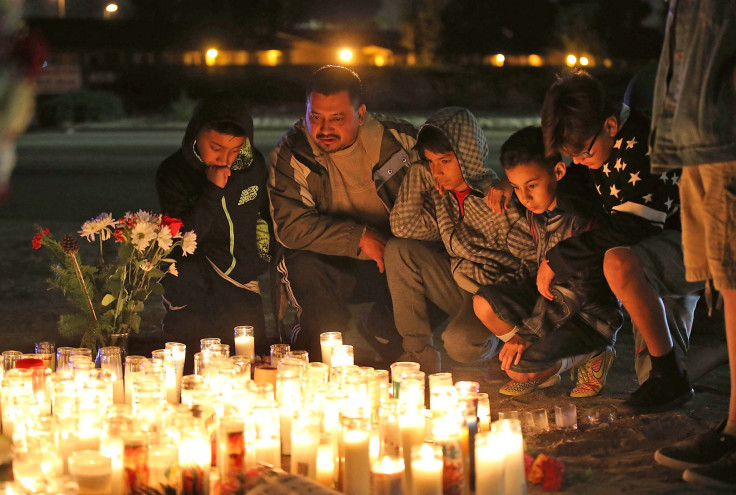US To Review Visa Applicants' Social Media Posts After San Bernardino Shooter Openly Praised Jihad

The U.S. Department of Homeland Security will begin screening the social media posts of applicants trying to enter the United States with a visa, the Wall Street Journal reported Monday. It’s part of a new initiative that aims to use social media sites to prevent mass shootings or domestic terrorist attacks like the one in San Bernardino, California, where one assailant hinted at the plan online before Dec. 2, when a married couple murdered 14 people at an office party.
Currently, Homeland Security screeners “intermittently” look at social media postings that do not include all of an applicant’s activity, the Journal reported. It was not immediately clear how deeply the government delves into users’ online lives, in part because officials do not wish to compromise the investigation process.
The announcement comes after a former senior Homeland Security official said the department refused to end a secret policy that prohibited looking at applicants’ social media accounts in 2014.
“During that time period immigration officials were not allowed to use or review social media as part of the screening process,” John Cohen, a former acting under secretary at the Department of Homeland Security, told ABC News. Cohen said Secretary Jeh Johnson would not budge on a policy that restricted immigration officials from accessing social media of foreign citizens applying for U.S. visas because of fears over “bad public relations” for the Obama administration.
The Journal report comes amid ongoing questions over how U.S. officials missed the social media activity of Tashfeen Malik, the Pakistani-born woman who entered the U.S. in July 2014. She passed multiple U.S. government background checks and was questioned at the U.S. Embassy in Pakistan while also expressing her support for violent jihad against the U.S. online. She, along with husband Syed Farook, orchestrated a plot that left 14 dead and 21 others injured earlier this month.
“Immigration, security, law enforcement officials recognized at the time that it was important to more extensively review public social media postings because they offered potential insights into whether somebody was an extremist or potentially connected to a terrorist organization or a supporter of the movement,” Cohen told ABC News.
Last week, Sen. Dianne Feinstein, D-Calif., introduced a bill that would require social media companies to report posts that could indicate malicious intent to law enforcement authorities.
© Copyright IBTimes 2025. All rights reserved.




















